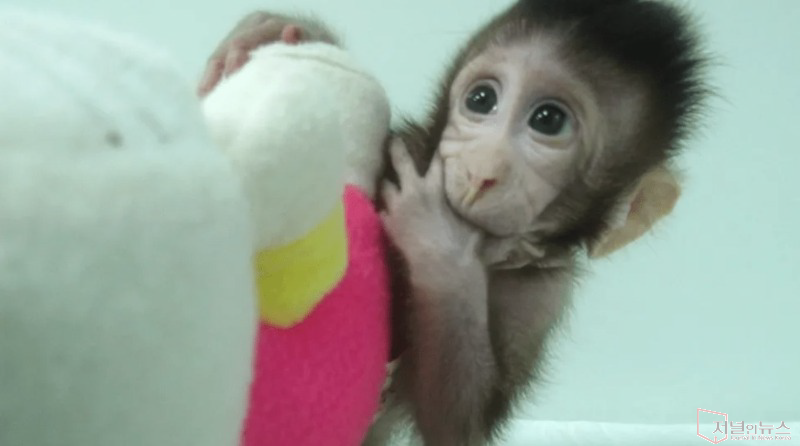
Chinese scientists have achieved an astonishing feat by successfully cloning the first-ever rhesus monkey, a species highly coveted in the world of medical research due to its remarkable physiological resemblance to humans. This groundbreaking achievement holds the potential to revolutionize drug trials, offering the promise of more reliable results and greater confidence in medical testing. This triumph, however, is not without its fair share of controversy, as animal welfare advocates voice deep concerns about the implications of this scientific breakthrough.
In the complex realm of mammalian reproduction, sexual unions usually result in offspring inheriting a mosaic of genes from both parents. But in the world of cloning, scientists employ intricate techniques to craft an exact genetic replica of a single living being. It's a concept that captured global attention when Dolly the sheep, a household name in the world of genetics, was born in 1996. The audacious feat involved reprogramming a cell from another sheep, turning it into embryos, and then delicately implanting those embryos into Dolly's surrogate mother.
Now, fast forward to the present day, and we find ourselves on the cusp of a scientific saga that rivals Dolly's tale. Chinese researchers, penning their monumental achievement in the illustrious pages of the journal Nature, describe how they have replicated this very process, albeit with a rhesus monkey. Their claim to fame? The cloned monkey has not only survived but thrived, robustly basking in good health for over two years. Dr. Falong Lu, from the University of Chinese Academy of Sciences, jubilantly reports that "everyone was beaming with happiness" at this extraordinary result.
However, amid the jubilation, a dark cloud looms on the horizon. The UK's Royal Society for the Prevention of Cruelty to Animals (RSPCA) has raised a chorus of concerns, asserting that the suffering inflicted upon the animals in pursuit of scientific progress may outweigh the immediate benefits for patients.
These rhesus monkeys, indigenous to the Asian continent, occupy a critical role in scientific investigations delving into infections and immunity. While macaque monkeys underwent cloning in 2018, rhesus monkeys hold a special place in the hearts of medical researchers due to their close genetic kinship with humans.
But here's where the plot thickens. Reprogramming adult cells into embryonic ones is a minefield of errors, with the vast majority of attempts culminating in disappointment. Very few cloned creatures see the light of day, and fewer still emerge into this world hale and hearty – a statistical reality hovering around the 1% to 3% mark for most mammalian species. Now, magnify this challenge with the notoriously elusive rhesus monkey, where birth remained an enigma until this research team's momentous revelation two years ago.
Their eureka moment, born of relentless dedication and ingenuity, was the discovery that previous cloning attempts had faltered due to misprogrammed placentas. These vital organs, responsible for nourishing the developing embryo, had not undergone proper reprogramming, leading to their abnormal development. To circumvent this quandary, the scientists embarked on a daring experiment: they extracted internal cells, those that grow within the animal's body, and introduced them into an uncloned external embryo, hoping for a miracle – a normal placenta. Out of 113 embryos subjected to this audacious gambit, 11 were chosen to be implanted, ultimately resulting in two pregnancies and one triumphant delivery.
The protagonist of this scientific saga, the cloned rhesus monkey, was christened "ReTro," a name paying homage to the very technique that breathed life into it. While the immediate applications of this study remain elusive, the tantalizing promise of future advancements in medical research beckons. The RSPCA, ever vigilant in its ethical quest, calls for a measured approach, reminding us that more animal models may be needed for further development.
Professor Robin Lovell-Badge, a staunch advocate of animal research when it aligns with the welfare of both patients and research subjects, joins the chorus of concern. He questions whether the monumental effort invested in this venture, involving a multitude of embryos and surrogate mothers, justifies the potential benefits. In a world where scientific endeavors often hinge on multiple successes, he underscores the need for more than one triumphant birth to truly gauge the success of this cloning technique.
In response to the mounting concerns, Dr. Falong Lu seeks to reassure us, promising to strive for.
